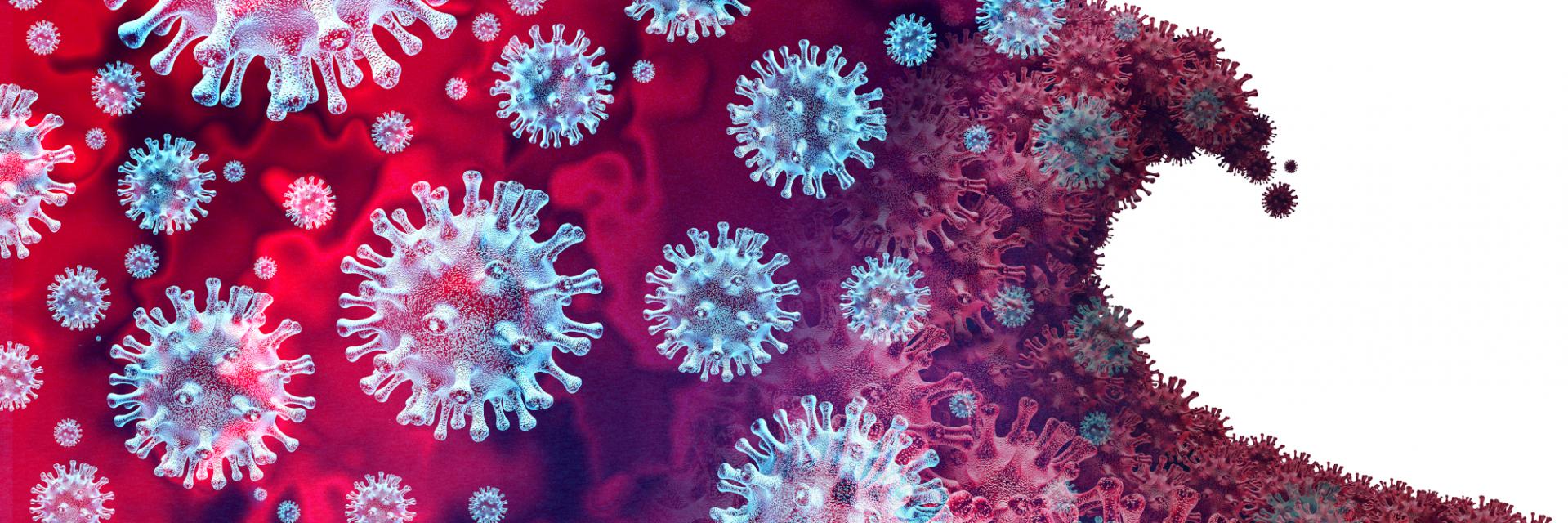Addis Ababa, Ethiopia, 8 December 2020 - Africa is better prepared to deal with a second wave of COVID-19 after stakeholders put measures in place to counter the initial pandemic’s adverse health effects. This is according to a panel of experts who took part in a special event on the second day of the 2020 virtual Africa Economic Conference, with the theme, “Africa beyond COVID-19: Acceleration towards inclusive and sustainable development.”
Dr. John Nkengasong, Director of Africa Centers for Disease Control and Prevention (Africa CDC), spoke at the gathering, titled “Post COVID-19 implications for strategic human capital development in Africa”. He stated that, “The continent is much more prepared to deal with the second wave than we were 11 months ago.”
About 2,3-million people in Africa have contracted COVID-19 to date, of which over 54,500 have died from the disease. However, much has been done to mitigate the adverse effects of the pandemic, including increasing laboratory testing capacity, beefing up primary healthcare defence mechanisms, and leveraging technology to reduce human contact.
And as the world gears up for new COVID-19 vaccines, Dr. Feng Zhao, Practice Manager of Strategy, Operations and Global Engagement at the World Bank, revealed that Ethiopia is the country leading Africa’s vaccine initiative. The World Bank unveiled US$12-billion in financing to help developing countries procure Coronavirus vaccines.
Besides the financing, the World Bank, in partnership with the World Health Organisation and COVAX, will also provide technical support to participating countries so that they can prepare to deploy vaccines at scale. But there are concerns that Africa, according to Dr. Nkengason, lacks a competent workforce, and remains a spectator of research and development. One area where Africa lags behind other regions is with the development of the vaccines, which a number of developed countries are already working on administering to their citizens. He, however, lauded African governments for speedily putting in place diagnostic measures against the outbreak. Within one year, he said, six countries have been able to develop diagnostics for this viral disease which started in China late last year. These countries are Nigeria, Kenya, South Africa, Senegal and Morrocco.
Clare Omatseye, President of the West African Health Federation, emphasized the need for a strategic partnership between the public and private sectors to effectively deal with the pandemic. She said one of the areas in which such a partnership has been instrumental, is in bringing about behavioural change, especially concerning misconceptions around the disease. Public-private partnerships, she added, could also help increase testing, data collection and capacity building. She added private sector players have been at the forefront in developing technology apps which are playing a critical role during the pandemic, when most countries are implementing social distancing rules.
But she urged governments to create an enabling environment to allow private sector players to build factories to manufacture protective equipment.
Various players from civil society, to the private sector and governments, were asked to work together to not only fight back against the disease, but to also build resilience against future pandemics.
“We have to work together to deal with the pandemic,” said Dr. Raymond Gilpin, Chief Economist and Head of the Strategy, Analysis and Research Team at the United Nations Development Programme, Africa. Dr. Gilpin called for different actors on the continent to build capacity to stop the brain drain that had depleted Africa health workers at a time when the continent is grappling with one of its worst health pandemics.
AEC2020 is jointly organized by the AfDB, ECA and UNDP, and brings together various stakeholders, including policymakers and researchers, to examine the socioeconomic impact of COVID-19 and measures to mitigate and recover from the pandemic.
Issued by:
Communications Section
Economic Commission for Africa
PO Box 3001
Addis Ababa
Ethiopia
Tel: +251 11 551 5826
E-mail: eca-info@un.org

